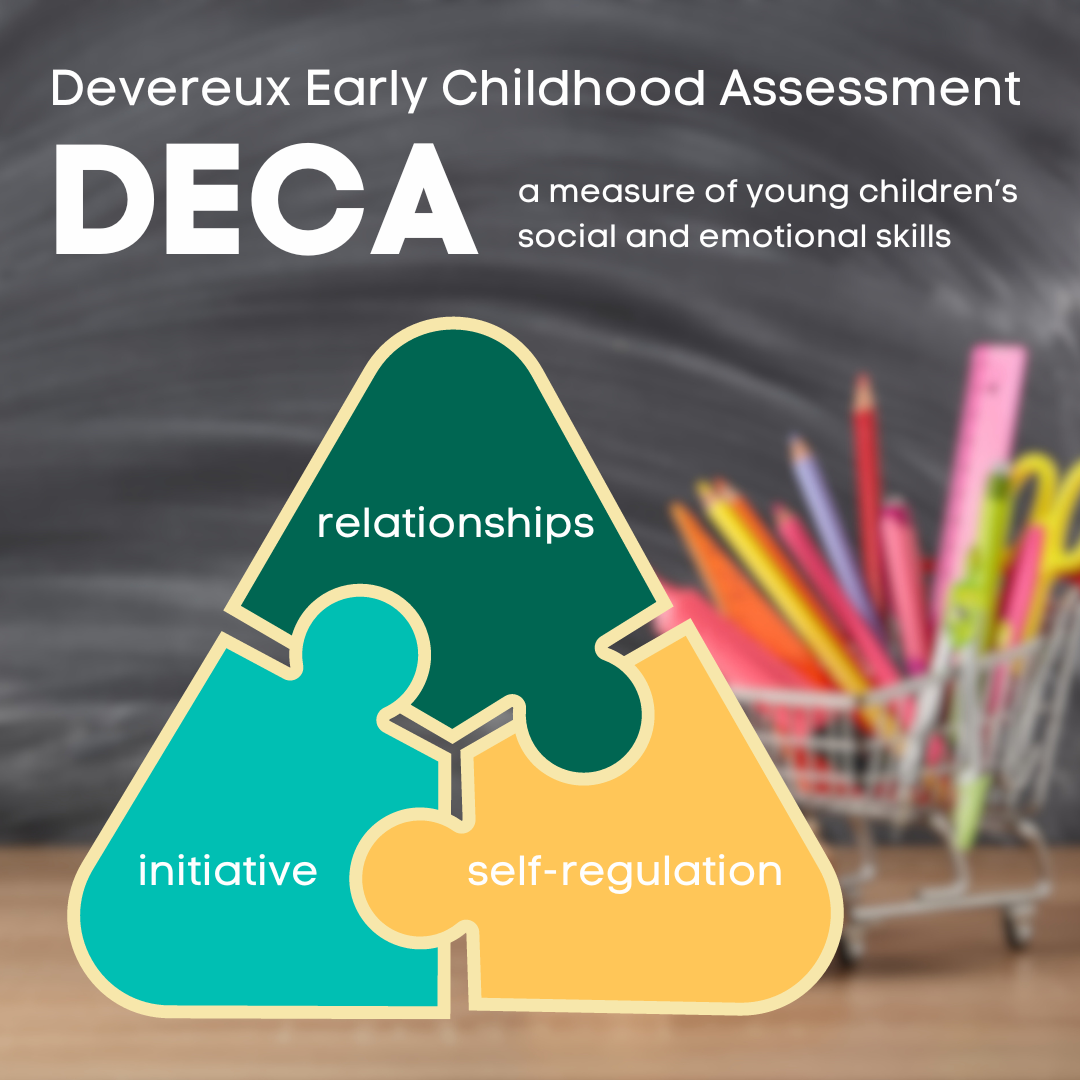Early childhood professionals know how important social and emotional health is for young children, but they don’t always know how they can teach children critical social and emotional skills. The beauty of the Devereux Early Childhood Assessment (DECA) Program is that it takes the best of what research tells us children need and puts it into a practical framework that teachers can use every day during their lesson plans and daily activities to teach social and emotional skills, thereby promoting a child’s resilience and social-emotional health.
The core of the DECA Program is a nationally standardized, reliable, and valid assessment (the DECA) that allows teachers to assess how every child in the classroom is doing with respect to three key social and emotional skills – developing healthy relationships, learning to regulate their emotions, and showing initiative.
The questions asked on the DECA are based on behaviors related to each of those three areas, because that is what the DECA helps us to do…to focus on the strength-based (positive) behaviors that contribute to the healthy social and emotional development of young children. Here are some of those behaviors…
Developing healthy relationships
- Showing affection for a familiar adult
- Joyfully interacting with other children
- Making eye contact with others
- Looking forward to activities at home or school
- Click here for more behaviors
Showing initiative
- Trying to do new things
- Imitating the actions of others
- Following simple directions
- Remembering important information
- Click here for more behaviors
Learning to regulate emotions
- Accepting another choice when the first choice is not available
- Showing patience
- Adjusting to changes in routine
- Listening to and respecting others
- Click here for more behaviors
If you’re wondering how you can support and promote these behaviors in young children, that’s where the DECA Program comes in, which offers various strategies for you to try out. The DECA Program shows teachers how to use ordinary opportunities throughout the day – whether it be drop-off, meals, or small group activities – as skill-building and teachable moments. When teachers learn that they don’t need to do “more,” but rather, learn how to think differently about their routines and lessons, they feel empowered. They see that implementing the DECA Program is possible, that it makes their day-to-day teaching experience better, that children can learn social and emotional skills, and that they truly can make a difference in the life of every child in their care.
Watch the following video to learn more about the DECA Program!
April 15, 2024



